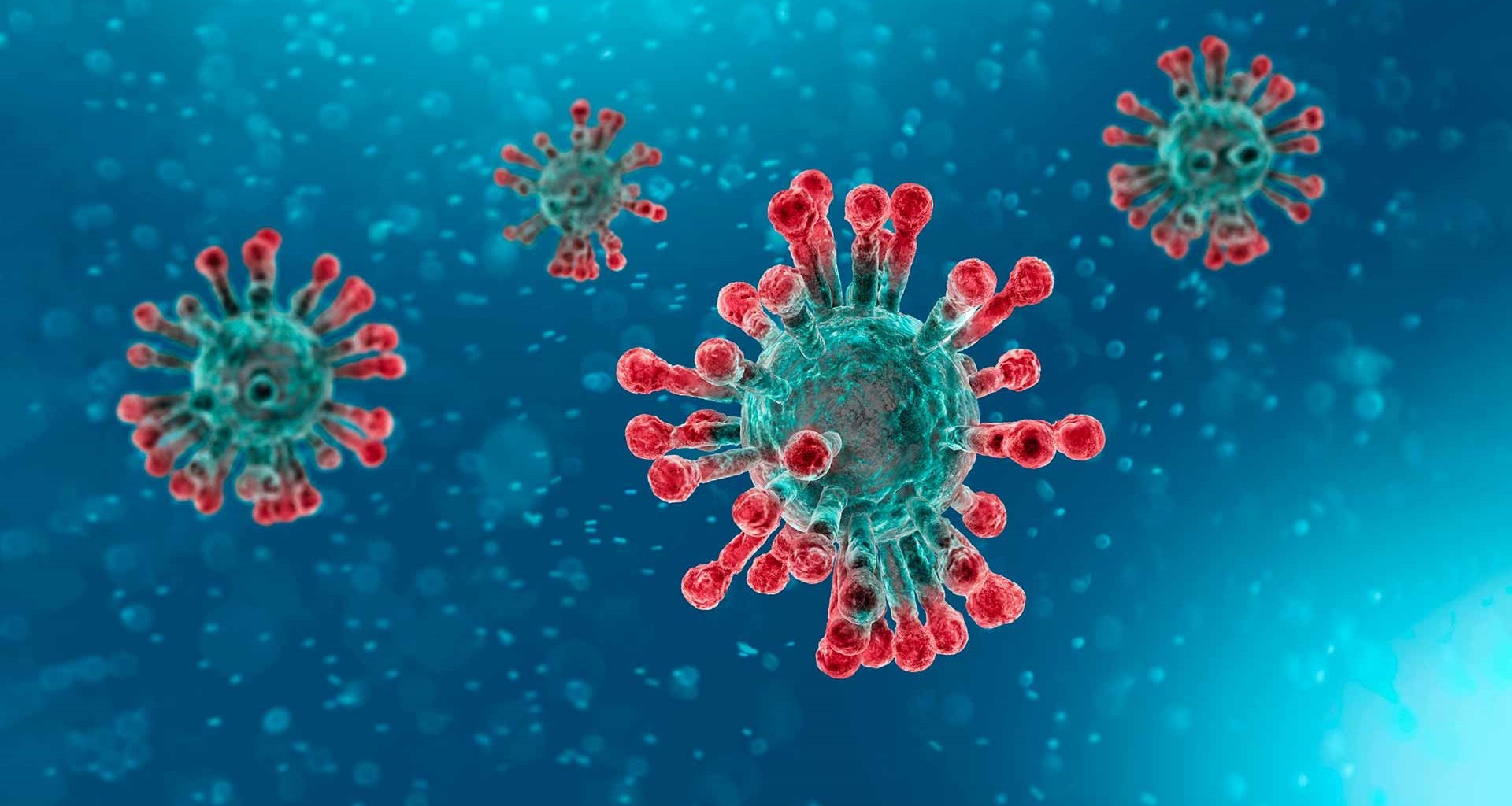 Coronaviruses are a family of viruses that normally only affect animals but can also infect people.
Coronaviruses are a family of viruses that normally only affect animals but can also infect people.
Their symptoms range from the common cold to more serious illnesses, severe acute respiratory syndrome (SARS-CoV), and the coronavirus causing Middle East respiratory syndrome (MERS-CoV)
The new coronavirus is called SARS-CoV-2, and the disease that causes SARS-CoV-2 is called COVID-19.
COVID-19: In late December 2019, the first cases of a new coronavirus were reported in the city of Wuhan (China). Since then, the number of those infected by the virus has been continuously increasing and its transmission from person to person has accelerated. Wuhan’s reported cases of pneumonia already far exceed those of the SARS epidemic, but the case fatality rate is lower.
Symptoms of COVID-19
The most common symptoms include fever, cough, and feeling short of breath.
In some cases there may also be symptoms of diarrhea and abdominal pain. In more severe cases, the infection can cause pneumonia, severe difficulty breathing, kidney failure, and even death. The most serious cases generally occur in people of advanced age or who suffer from some other disease such as heart, lung or immunity problems and those with lowered body defenses.
How is COVID-19 spread?
Like other infections caused by similar viruses, transmission is through close contact with respiratory secretions generated by a sick person’s cough or sneeze. These secretions infect another person if they come in contact with their eyes nose or mouth.
Also if an infected person touches his nose, mouth or eyes, and subsequently touches a surface, the virus stays on that surface for hours.
 What can I do to protect myself?
What can I do to protect myself?
Generic individual measures of protection against respiratory diseases include frequent hand hygiene (washing with soap and water or alcoholic solutions), especially after direct contact with sick people or their environment; avoid close contact with people who show signs of a respiratory condition, such as a cough or sneeze; keep a distance of approximately one meter with people who have symptoms of acute respiratory infection; Cover your mouth and nose with a tissue if you need to cough or sneeze and wash your hands. These measures, also protect against other illnesses like the flu. At this time in Spain there is an increase in cases of coronavirus infections, which has led the authorities to take measures such as limiting freedom of movement (staying at home) to protect the population from contagion. You should also avoid being at distances of less than a meter with other people and gatherings are banned.
WHAT TO DO IF YOU THINK YOU HAVE COVID-19
• If you have a fever / low fever in addition to a cough, do not leave home for 14 days
• Drink water, take Paracetamol and rest to relieve symptoms
• Watch your symptoms and do not go to the emergency room
When should I call 112?
If, in addition to cough and fever, any of the following symptoms appear:
• Difficulty breathing
• Diarrhea / vomiting
• Major discomfort
KEEP CALM
1.Call the emergency number for your community (Valencian Community +34 900 300 555)
Stay calm since in COVID-19 does not cause acute or sudden respiratory distress. The feeling of shortness of breath usually appears little by little and you will be seen in time.
2. If you cannot contact them, go to the emergency room with a mask.
What will happen in the emergency room?
• You have to know that not all patients are tested for coronavirus.
• They will assess your case and decide if it’s worth doing an x-ray and blood tests. Depending on the results, you will go home, or stay in the hospital under observation.
What is home isolation if I have COVID19?
• You stay in a room for individual use, well ventilated and with the door closed
• Use an exclusive bathroom if possible
• Communicate with family members by phone.
• Wash your hands frequently
• Clothes should be washed separately, and be collected in a sealed bag
• If you need to leave the room, you need to wear a surgical mask
• Avoid contact with the elderly, pregnant women or those with chronic diseases
• Wash dishes and cutlery separately
• Disinfect surfaces with bleach diluted with water
Most cases of COVID19 have a
good outcome.
If you want more information, visit the official pages of the Spanish Ministry of Health.
Remember that the most important thing for the reduction of infections is prevention.
Hand washing, do not touch your face, avoid public places and avoid close contact with people who may be sick. Avoid travel if it is not strictly necessary and follow the recommendations of the authorities.
For more information please contact Gran Alacant Family Doctors
www.familydoctors24h.com
T: 865 789 554



